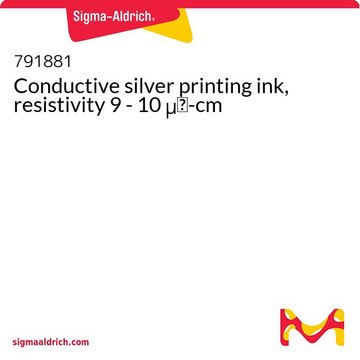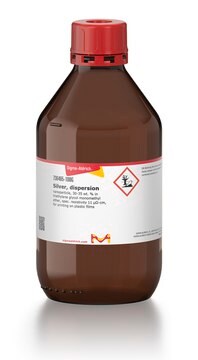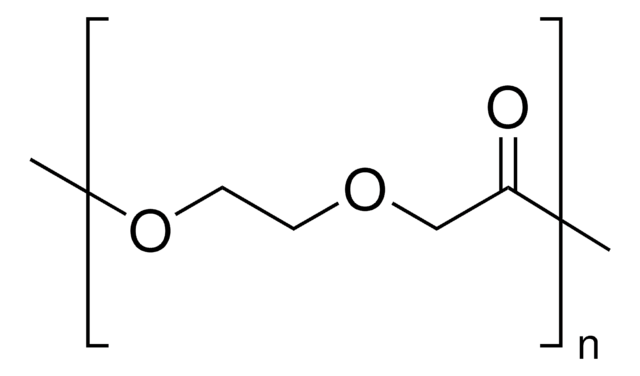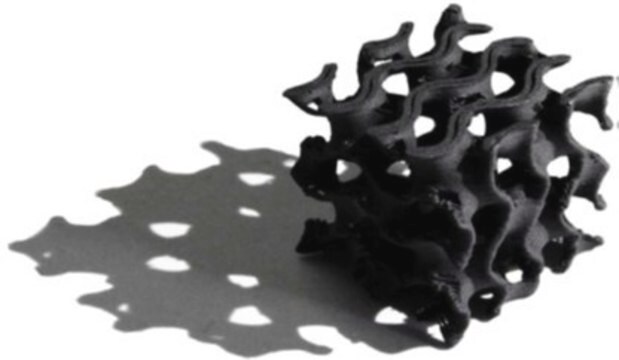907669
Silver ink
75 wt%, LIFT printable
Synonym(s):
Ag ink, Laser induced forward transfer
About This Item
Recommended Products
description
Silver content : 75 wt%
Solvent : Diethylene Glycol Mono Butyl Ether (DGBE)
Surface Tension : 28 dyn/cm (Pendant Drop)
form
paste
particle size
50-70 nm (by Lumisizer™)
90-120 nm (by Lumisizer™)
viscosity
50,000-100,000 cP (Shear Rate: 1 s-1
250cP - 450 cP (Shear Rate: 1000 s-1))
density
2.85-3.3
storage temp.
15-25°C
Application
The ink offers:
- Uniform and reproducible donor layer with low drying speed
- Stable accurate jetting in different types of laser systems, wide working window of jetting parameters
- High speed printing (20-50kHz), allowing high throughput
- Narrow patterning on plastic and glass substrates (line width ∼50 μm, height ∼0.5 μm, spacing ∼50 μm)
- Laser sintering of LIFT printed pattern, providing good electrical properties
Fit for:
LIFT digital printing
Additive electronic manufacturing
Printed electronics: RFID, FPD, Sensors
Laser induced forward transfer printing (LIFT) is a non-contact, nozzle-free, one step, direct laser writing process.
LIFT can operate under atmospheric conditions, is compatible with low laser fluences, allows the printing of organic and inorganic materials as well as biological elements. The printing process can take place from both liquid and solid phases. It further has a high lateral resolution only defined by the laser spot size. It is a method compatible with inorganic semiconductor sensor fabrication, OLED fabrication and bio printing.
Other Notes
*Parameters should be optimized depending on line geometry and substrate
Storage and Stability
Legal Information
Signal Word
Warning
Hazard Statements
Precautionary Statements
Hazard Classifications
Aquatic Acute 1 - Aquatic Chronic 1 - Eye Irrit. 2
Storage Class Code
10 - Combustible liquids
WGK
WGK 3
Flash Point(F)
Not applicable
Flash Point(C)
Not applicable
Certificates of Analysis (COA)
Search for Certificates of Analysis (COA) by entering the products Lot/Batch Number. Lot and Batch Numbers can be found on a product’s label following the words ‘Lot’ or ‘Batch’.
Already Own This Product?
Find documentation for the products that you have recently purchased in the Document Library.
Articles
Professor Tokito and Professor Takeda share their new materials, device architecture design principles, and performance optimization protocols for printed and solution-processed, low-cost, highly flexible, organic electronic devices.
Our team of scientists has experience in all areas of research including Life Science, Material Science, Chemical Synthesis, Chromatography, Analytical and many others.
Contact Technical Service








